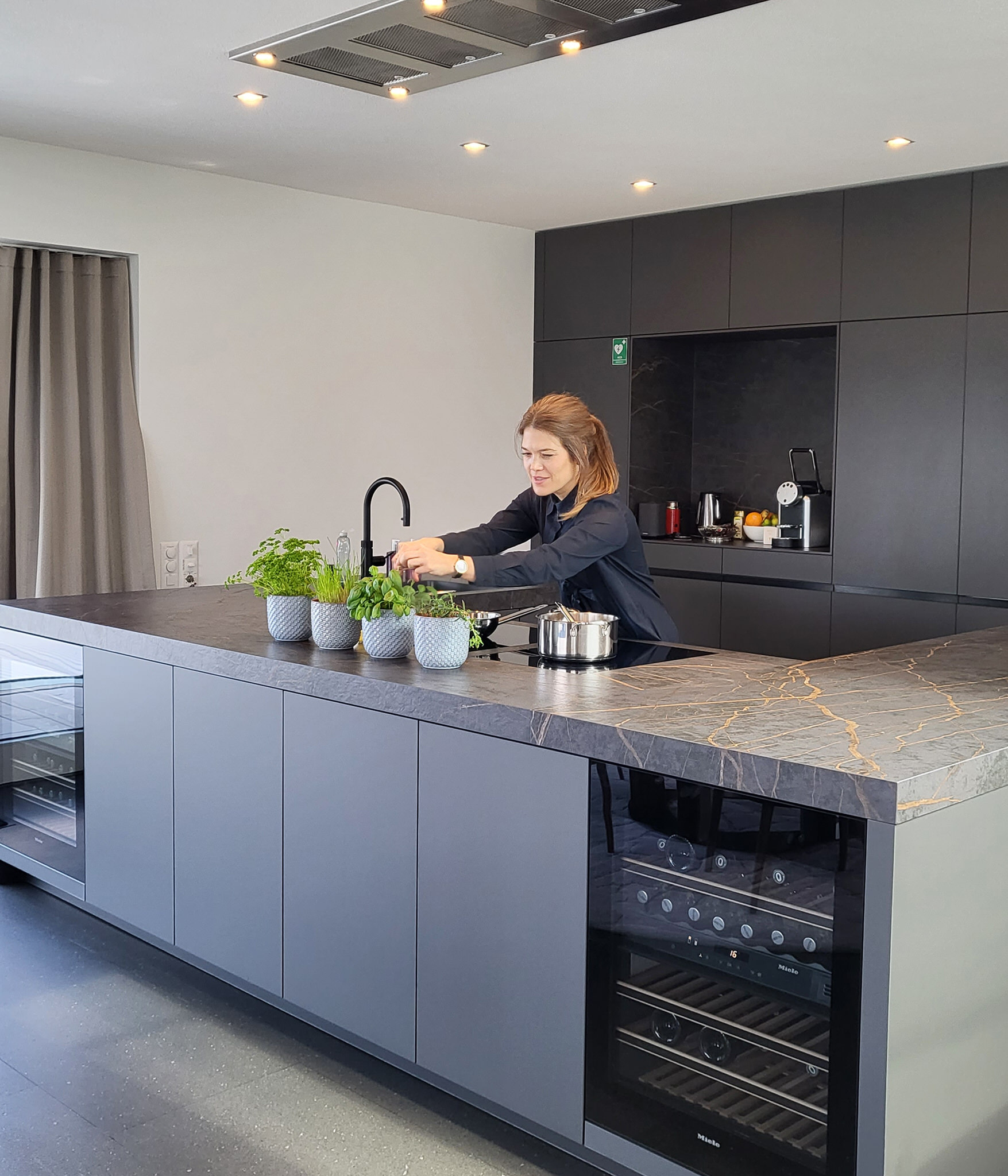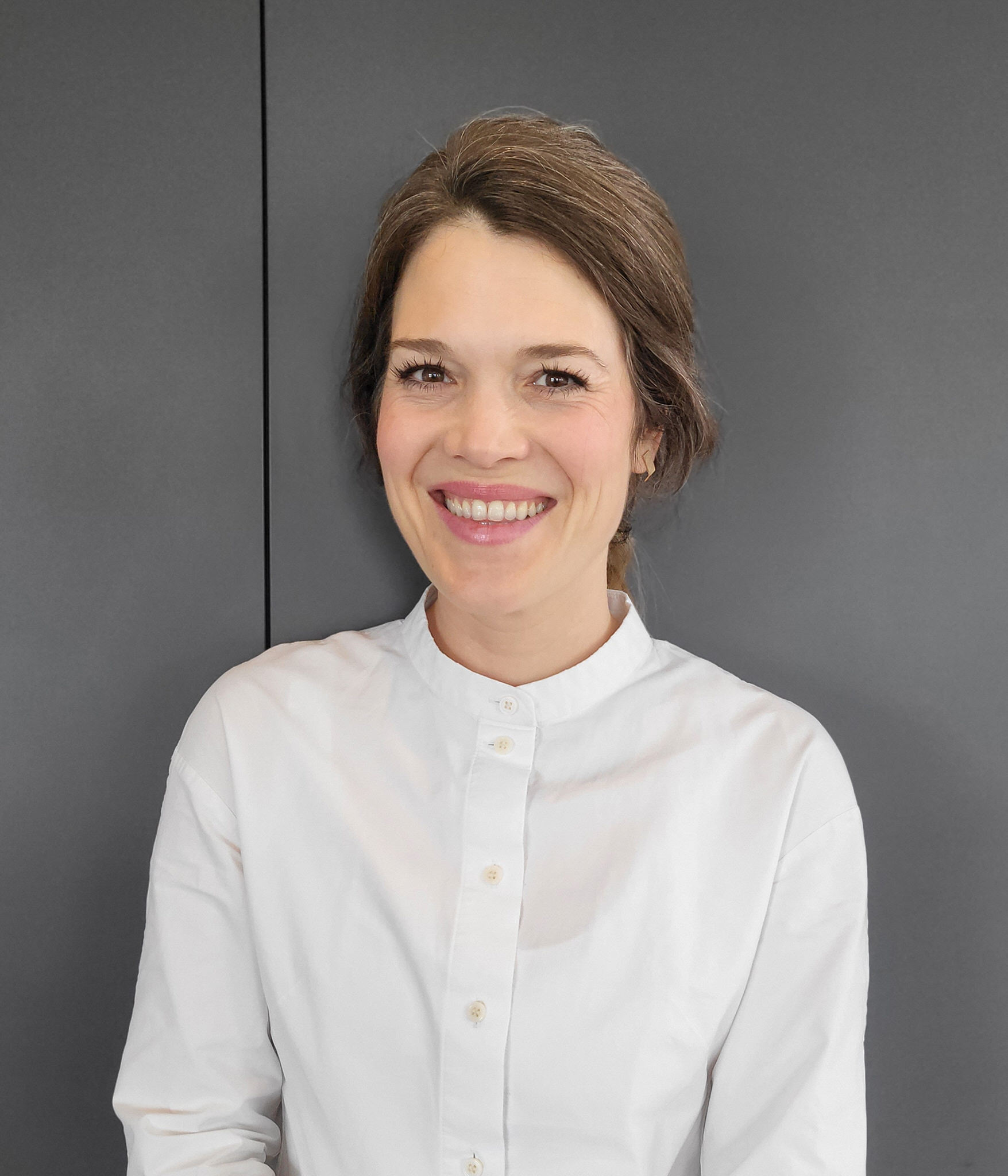Profession: Butler! Seven Things You Should Know About the Job
Insights by Nadja Ruby | 29.05.2025

From the outside, Nadja Ruby’s work is easy to underestimate, because if she does it well, she barely draws attention to herself. She has spent more than nine years serving as a butler and private chef in households all over the world—and she shares seven insights she has gained in this highly complex profession. After all, anyone who takes themselves too seriously won’t get very far.
1. The tailcoat stays in the closet
Society still clings to an outdated image of a butler: a gentleman in a tailcoat, perhaps like in the classic film “Dinner for One.” These days that look is anything but current—at most it is extremely rare. “I never wear the traditional butler outfit,” Ruby says. “Instead, I follow the household dress code, which is usually something black.” That could be suit trousers or sometimes a simple dress. “What matters is that I can move freely,“ she says, because a butler spends the entire day on their feet, keeping an eye on things. The job is no longer a cliché; rather, it is a respectful and rewarding vocation devoted to caring for others.
2. Body and mind are your capital
People often underestimate how physically demanding the job can be. “I make sure my body and mind are in good shape,” Nadja Ruby says. Anyone who wants to stay in the role for the long haul has to look after themselves. Her personal formula for resilience includes plenty of exercise, meditation, and private rituals to stay fit. “When I notice I’m out of balance, I retreat, find new structures or change routines,” she says. “That’s important for me and for the household.” “I’m nowhere near finished. I still want to learn a lot and remain with these wonderful families as long as possible,” she enthuses. For a while she acted like a firefighter on the market, filling in for short-term vacancies, until she began working with OPMG alongside her various butler posts.

3. A plan is good. A plan B is even better.
One thing is certain: no day is like the next. Everyone in this line of work knows that. As a butler you must react in a flash, find solutions and keep calm. “Improvisation is part of my everyday life—but that’s the wonderful side of it,” Nadja says. That could mean minor kitchen emergencies when ingredients run out or sudden schedule changes before a reception. “I keep an overview and silently work out a solution in my head,” she notes.
4. Passion above all
Before starting as a butler and private chef, Nadja studied industrial design. As a self-employed designer she eventually asked herself: “What would I do if money didn’t matter? What truly makes me happy?” The answer: cooking and caring for other people. The beauty is that many parallels exist between her former and current jobs—from structured thinking to creativity—and she still uses all those skills today. Without formal culinary or butler training, she began in a household and learned everything on the job. Her insider tip: some employers want 24/7 availability, others only until 5 p.m. Having done both, she advises career changers, “If you want to climb the ladder, the intensive positions are like a paid crash course,” she says.
5. The perfect butler kit
“When I travel, I focus on essentials—both for daily life and for the specific assignment,” Nadja Ruby reveals. That means traveling light yet never unprepared. Over the years she has developed a compact kit that keeps her ready for anything. Inside are sewing supplies, a lighter, a bottle opener, an oyster knife, and even a porcelain spoon for caviar, because you never know what’s coming. Also indispensable: business cards, because if you do your job well, someone else may take notice.
6. No one has to justify themselves
Diplomacy is crucial in this profession, but that doesn’t mean you merely say “yes” to everything. Even so, Nadja rarely voices her personal opinion, even when asked. She sees her role as staying neutral—“like Switzerland.” Working in a private home means moving through the most intimate areas of people’s lives. “Every household has its own character, just like any social group or company,” she says. Still, one common thread runs through them all: “My job is always about dealing with people.” She is keenly aware that it is a privilege to be allowed into these private spaces.
7. Superpower: restraint
“I think I’m an authentic butler because I can step back without feeling I’m missing out,” Nadja Ruby says of her role. In this job, it is not about self-promotion but about freeing the people who trust you to focus on their lives. “In this restraint lies great dignity – the dignity of service, if you will. I’m present but not visible. That’s not a contradiction; it’s craftsmanship.”
The profession of a butler is multifaceted. Those who practice it work close to people who rely on trust, because you not only open doors but also gain insights into their worlds. You don’t merely enter rooms; you enter entire universes. It isn’t about recognition or perfection but about attitude, discreet presence and a feel for people who often make major decisions outside the home. With courage, a willingness to learn and empathy, it is a privileged and fulfilling career—one that brings genuine joy.

You can reach OPMG by phone at +49 89 414243 99-0 or by email at office@opmgstaff.com.
Their clientele includes global entrepreneurs and corporations, aristocrats, icons from sport and lifestyle, and world-class decision-makers. The team operates internationally and across borders, with Europe as its base – and soon with an office in Zurich, Switzerland. OPMG works exclusively on a success-based model – no upfront fees, no hidden costs. Placement is always free for candidates.
Contact
Let’s start building connections
Looking after other people is in our genes.